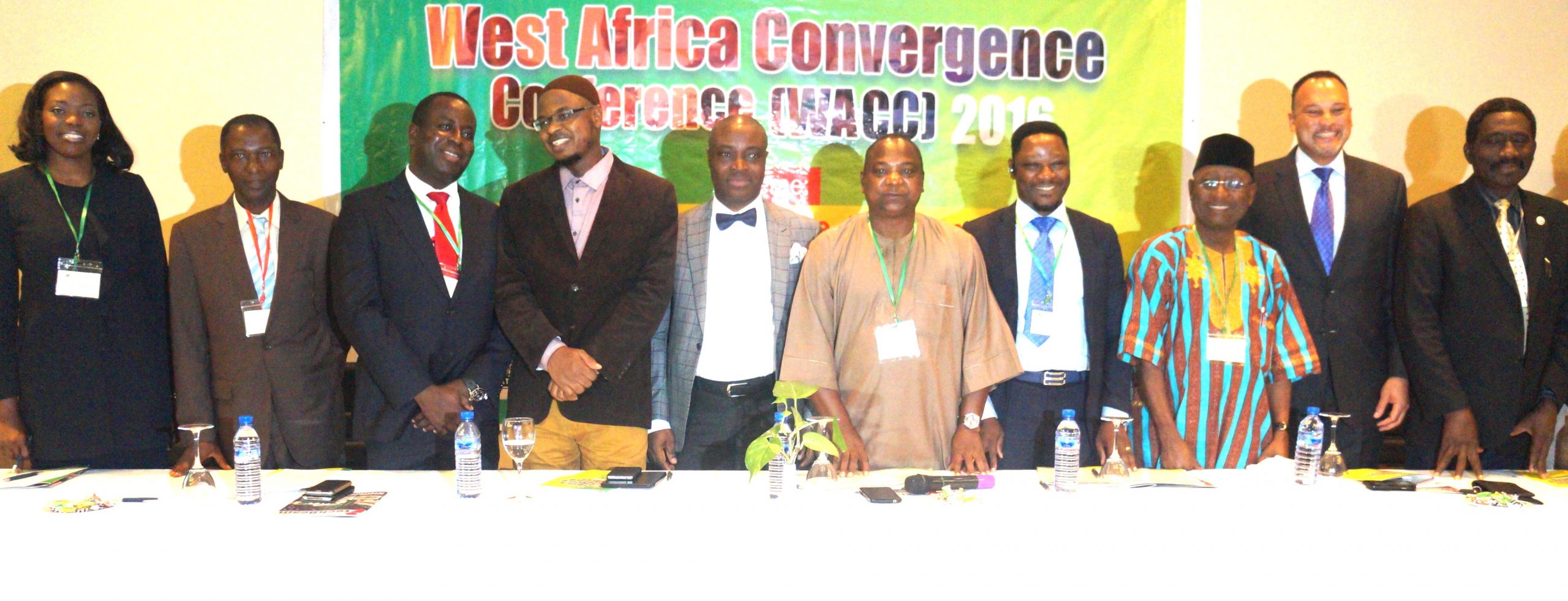By Anthony Nwosu and Aanuoluwa Omotosho
Regulators, operators and cross-sectors stakeholders have a role to ensure that regulatory frameworks and legislations continuously support innovation and competition, even as convergence takes foothold in West Africa, experts have submitted at the 8th West Africa Convergence Conference (WACC) that held recently in Lagos. WACC is the annual stakeholders’ forum on convergence trends in West Africa organised by Knowhow Media & Market Intelligence International Limited.
While technology convergence has inherently meant the fusing of otherwise separate technology platforms, for regulators and policy makers, the challenge has remained how to sustain growth, maintain market coherency, remain fair to all parties and be effective in the face of increasing trends of disruptive technologies.
“Every operator is concern with leveraging on technologies to enhance service, gain competitive advantage and operate within the fringe of existing regulatory frameworks. The pressure to meet market and technology dynamics often result in conflict with slower regulatory process,” said President of the Association of Telecom Companies of Nigeria (ATCON), Mr. OlusolaTeniola. ATCON is the umbrella body for telecom companies in Nigeria.
Convergence poses a unique challenge to all regulators and increasingly, they must adopt positions that best serve all interests, said Executive Vice Chairman/CEO of Nigerian Communications Commission, Prof. Umar Garba Danbatta, in a paper sent in for WACC 2016 on “Regulation, Technology Neutrality and New Telecom Services in the era of Convergence.”
Danbatta said the NCC had opted for technology neutrality convinced that technology cannot be regulated but operators could be regulated to comply with the policy goals of the country as it concerns the telecom sector. His words:
“We are all witnessing different technological changes and also observing convergence of services and their resulting effects on regulations especially, technology dependent regulations which are made obsolete by these changes. We have learnt from these experiences that, in developing regulations, we need to consider technology neutrality.
”We equally understand that, technology dependent regulations could hamper, slow down or restrict innovations, development and deployment of new services.
As regulator, we have observed emerging trends and evolution of new technologies and services from time to time. technological changes such as Over The Top (OTT) services whose mode of operations are technically different from the traditional services have emerged. OTT services are competing with traditional services, for example, voice calls are routed differently from the existing system which used structured numbering plan developed for routing and billing purposes, for technically different platform which establishes call using applications (apps) sitting on phones connected through the Internet to their hosting servers.”
But Danbatta insists that the “Commission will continue to provide the enabling environment including the formulation of technology neutral regulatory frameworks to promote growth and development in the industry.
For the Director General, National Information Technology Development Agency (NITDA), Dr. Isa Ali Ibrahim Pantami who spoke on ‘Convergence, IT Regulation and the Promotion of Local Content’, regulation remain essential to sustaining real growth and the building of indigenous capacity, and with convergence, it becomes even more imperative to ensure that the country leverages on converged platforms not just as a consumer but as a producer. His words: “Without regulation, you cannot in any way promote our local content; you cannot in any way encourage and motivate people to patronize it. Look at our local industries all over, they are complaining about patronage. Why?
“If you look at the amount of money we spend annually on the importation of goods and services of ICT you will be amazed. It is approximately around US$2.6billion annually and this amount is projected to reach around US$147 billion in 2020. It is almost 6 times our current budget. And that is why we are putting more pressure on our local currency (The Naira). There is no strategy on developing our local content. We are focused on sourcing forex and importing something into our nation without cross-checking whether we have it in our nation locally or not.”
The trio of Mr. Bimbo Abioye, CEO of Fintrak Software Limited, Mr. Ikechukwu Nnamani, CEO of Medallion Communications Ltd, and Mr. Tunde Coker, CEO of Rack Centre agree with Pantami arguing that policy ought to drive patronage of indigenous solutions and government has to lead with the required legal and policy frameworks to promote local content.





























